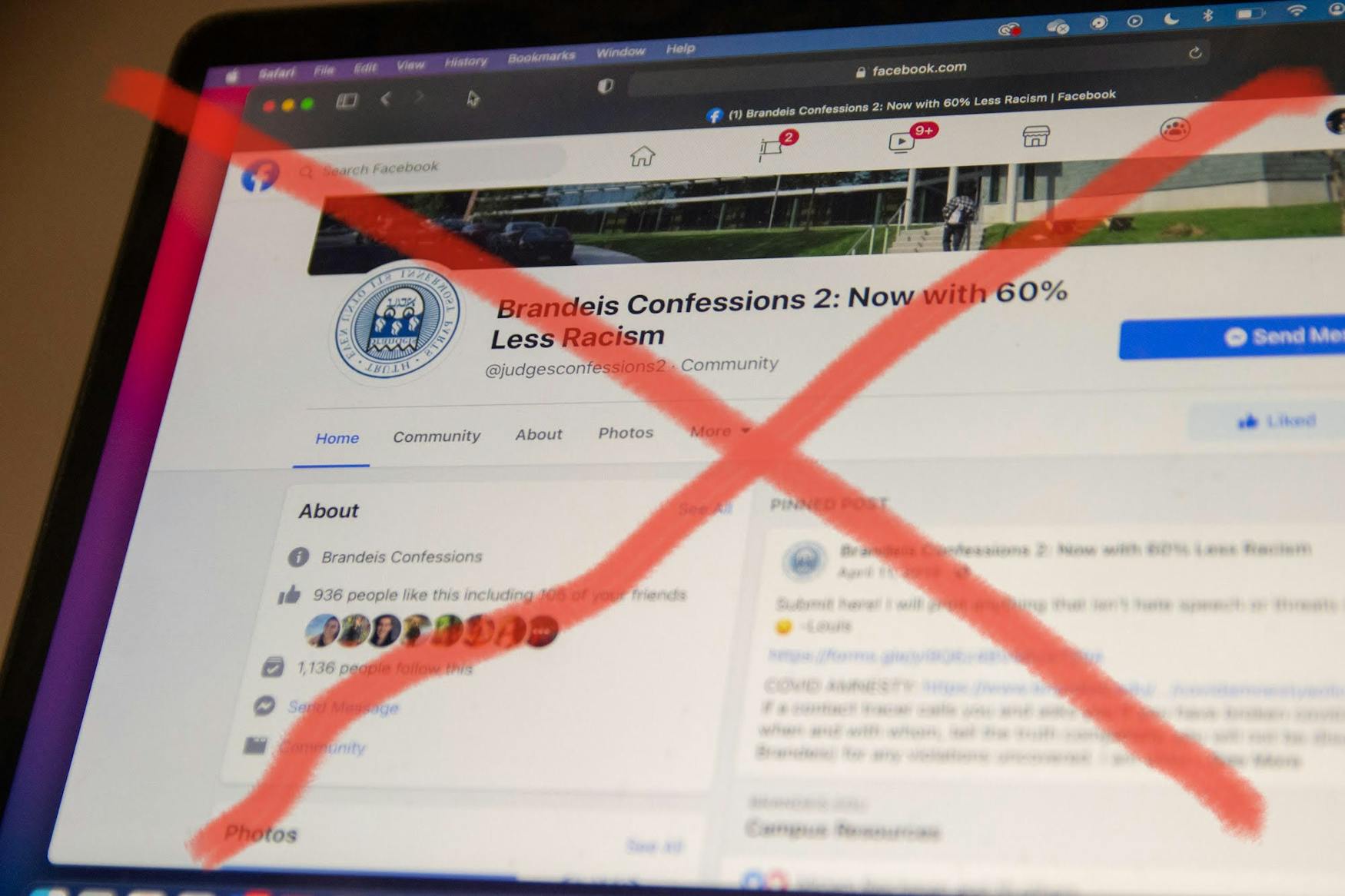Please stop reading Brandeis Confessions
The vexing issue of anonymous campus confessions pages, where students can anonymously submit posts for viewing by anyone who follows them on social media arose again over winter break. The confessions group associated with Brandeis is well known for being a forum for both anti-Jewish and racist sentiments. I’d share some examples, but I’d prefer not to share expletives.
I suppose that, depending on your sense of humor, some of what’s on a campus confessions page might be funny. It seems to me, however, that there are several reasons to avoid forums rooted in anonymity.
First, most of the racist and antisemitic content on the confessions page is straightforward stereotyping. No one considers it acceptable, but people can get away with it when they’re anonymous. The current iteration of the page remarkably calls itself “60% less racist” than the previous incarnation, explicitly admitting or celebrating the fact that it is still racist.
Second, there’s no way to know whether the posts are from fellow Brandeis students. Why allow oneself to be triggered by content about Brandeis that might have been posted by someone with no real connection to our campus? Publishing with a byline in a campus paper or participating in a facilitated, live discussion would be far more constructive. At least you’d know the person you’re reacting to actually goes to Brandeis.
Third, there is a fine line between a confessions page, which only works with the veil of anonymity, and the conspiratorial “anon” of QAnon. Exposure to exaggerated claims and misinformation distorts and erodes our sense of what’s real and what’s fake. If you start to believe what you read on a confessions page, what else can you be duped into believing from a more dangerous source of misinformation?
If you’re frequenting a confessions page, you’re letting yourself descend into the rather obvious pitfalls of the internet. As Jia Tolentino, former editor of Jezebel puts it in Trick Mirror: Reflections on Self-Delusion, the internet “encourages us to overvalue our opinions. … It maximizes our sense of opposition” and “it destroys our sense of scale.” Anonymity makes a point of view appear far more common and large-scale than it may be. The lack of accountability baits people into having back-and-forth arguments, creating a sense of conflict between students and communities that may not be as nearly pronounced in real life. And if someone has a pressing concern in real life then it ought to be addressed in real life.
Some will point to the sometimes positive interactions on a confessions page. Others will blame the moderators who maintain them. They do such a bad job, they’ll say. But the argument that we should blame the moderators is like saying social media and the internet ought to be more regulated. Sure, moderators bear some responsibility. But each of us has to make choices about what we say and what we read.
Confession pages involve several of the internet’s stumbling blocks for those of us who want to address the suffering of individuals and the systemic reasons for their suffering. Forums that depend and thrive on anonymity should be less socially acceptable. That means we should react less to anonymous posts. And when we have something to say, we should do it with care and consideration in forums that exist for constructive dialog and debate.
Rabbi Seth Winberg serves as director of the University’s Center for Spiritual Life and as the executive director of Brandeis Hillel.



Please note All comments are eligible for publication in The Justice.